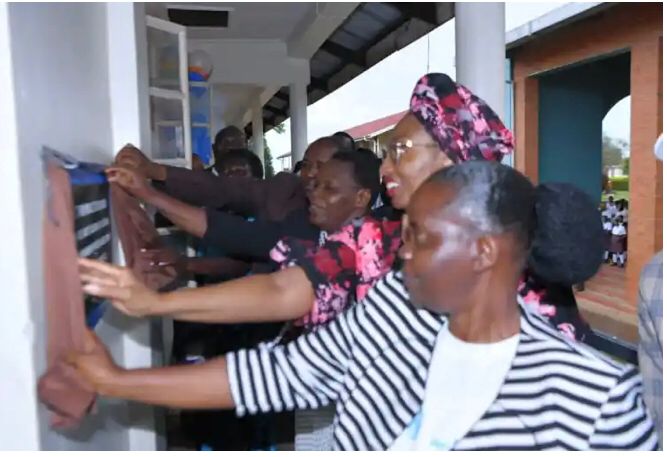UN Women has unveiled a new technology hub under the African Girls Can Code Initiative (AGCCI) in the Rwenzori sub-region, aimed at equipping young women with coding and digital innovation skills to thrive in science, technology, and innovation (STI) fields.
Located at Kyebambe Girls’ Secondary School in Fort Portal, the facility is equipped with 60 computers and will serve as a center for training, mentorship, and innovation.
This marks the second regional AGCCI hub in Uganda, reinforcing efforts to promote gender equality in digital spaces while supporting the country’s broader digital transformation agenda.
Speaking at the launch, Ms. Adekemi Ndieli, UN Women Uganda’s Deputy Country Representative, emphasized the importance of empowering girls with digital competencies.
“When girls are given access to technology and opportunity, they do not just participate—they lead,” Ndieli said.
“These AGCCI hubs ensure that no girl is left behind in Uganda’s digital transformation.”
Since its launch in 2018, AGCCI — a joint initiative of UN Women, the African Union Commission, and the International Telecommunication Union (ITU) — has trained over 2,000 girls across Africa.
Many participants, previously unfamiliar with computers, now code, develop websites, and build digital solutions for their communities.
Ndieli noted that the new hub would strengthen mentorship networks and foster partnerships that integrate digital education into mainstream learning systems.
“The future of Uganda’s innovation ecosystem depends on investing in girls’ digital skills,” she said. “This hub is not just about learning to code—it’s about creating a generation of problem-solvers, innovators, and leaders who will shape Uganda’s digital future.”
By targeting girls in the Rwenzori sub-region, the AGCCI hub seeks to reduce regional inequalities in access to technology and build confidence among young women to take on leadership roles in the digital economy.
The launch underscores UN Women’s mission to ensure that women and girls are not merely consumers but creators and leaders in the digital age, driving inclusive and tech-driven development in Uganda.


